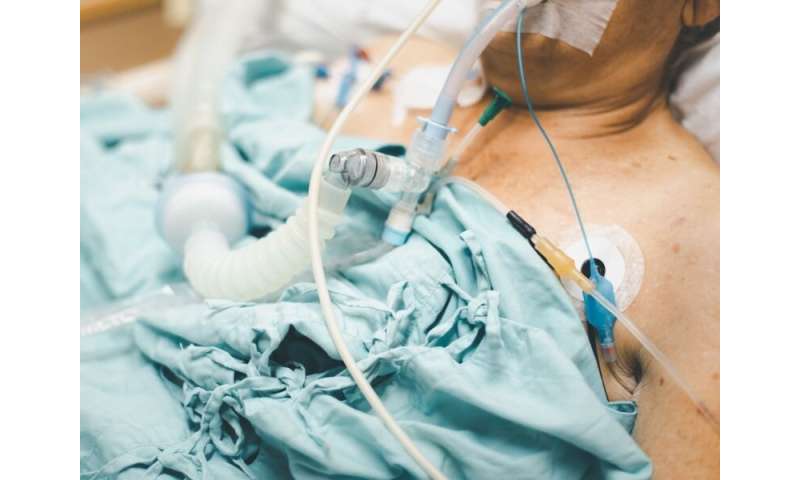
(HealthDay)—Early tracheostomy in hospitalized COVID-19 patients who require mechanical ventilation is noninferior to late tracheostomy and may be associated with improvement in some outcomes, according to a study published online Dec. 17 in JAMA Otolaryngology-Head & Neck Surgery.
Paul E. Kwak, M.D., from NYU Langone Health in New York City, and colleagues reviewed medical records from 148 patients (mean age, 58.1 years) with laboratory-confirmed COVID-19 requiring mechanical ventilation at a single tertiary-care medical center in New York City from March 1 to May 7, 2020. Outcomes were compared based on timing of early tracheostomy (within 10 days of endotracheal intubation).
The researchers found that the mean time from symptom onset to intubation, from symptom onset to tracheostomy, and from endotracheal intubation to tracheostomy was 10.57, 22.76, and 12.23 days, respectively. The mean time to discontinuation of mechanical ventilation, from tracheostomy to first downsize, and from tracheostomy to decannulation was 33.49, 23.02, and 30.16 days, respectively. For all patients, the mean length of stay was 51.29 days. There was a significant association observed between timing of tracheostomy and length of stay, with a median length of stay of 40 days among patients who underwent early tracheostomy and 49 days among those who underwent late tracheostomy (median difference, −8; 95 percent confidence interval, −15 to −1). In a competing risks model when competing with the risk for death, the late tracheostomy group was 16 percent less likely to discontinue mechanical ventilation (hazard ratio, 0.84; 95 percent confidence interval, 0.55 to 1.28).
Source: Read Full Article






